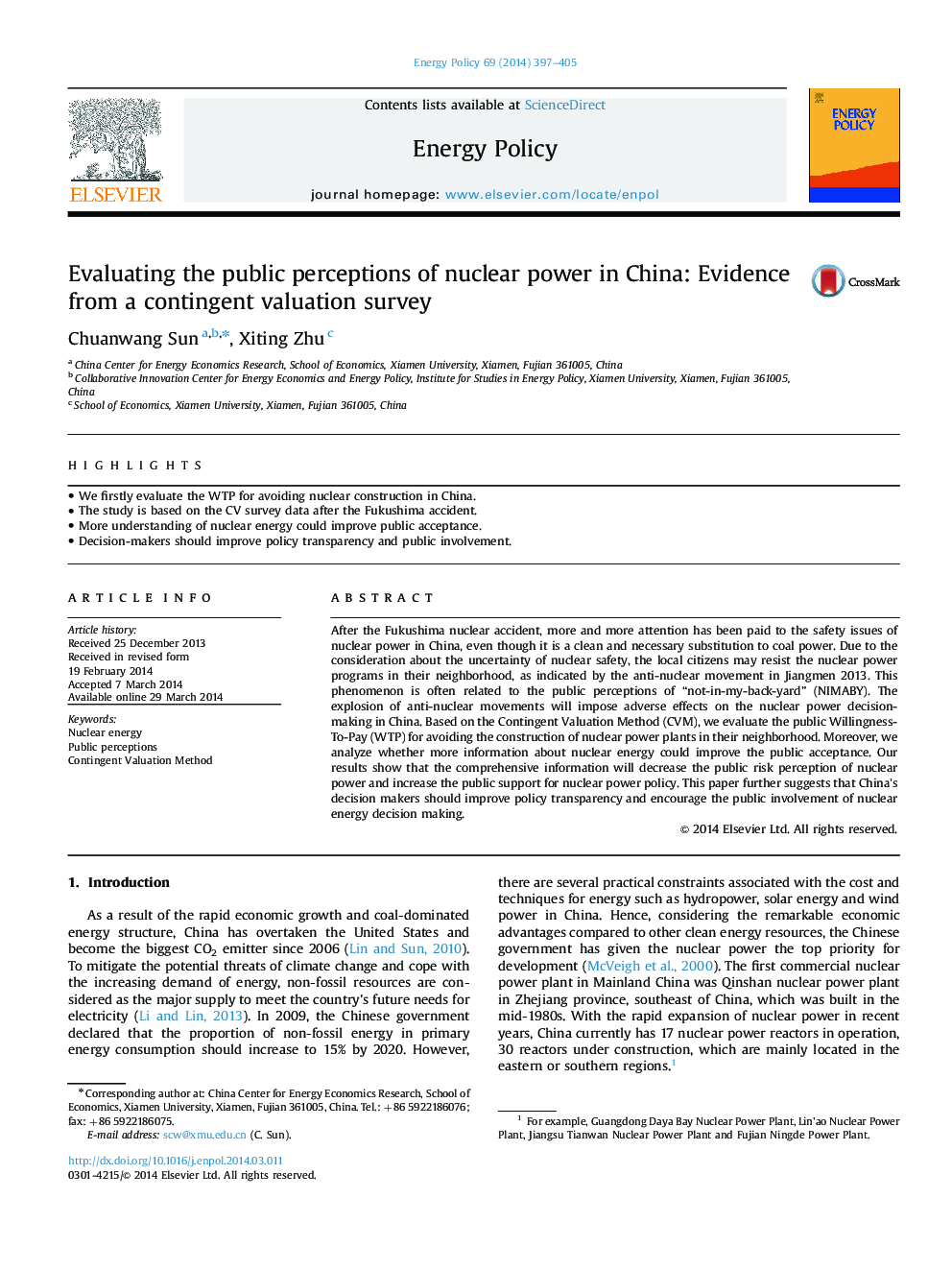| کد مقاله | کد نشریه | سال انتشار | مقاله انگلیسی | نسخه تمام متن |
|---|---|---|---|---|
| 992916 | 1481289 | 2014 | 9 صفحه PDF | دانلود رایگان |
• We firstly evaluate the WTP for avoiding nuclear construction in China.
• The study is based on the CV survey data after the Fukushima accident.
• More understanding of nuclear energy could improve public acceptance.
• Decision-makers should improve policy transparency and public involvement.
After the Fukushima nuclear accident, more and more attention has been paid to the safety issues of nuclear power in China, even though it is a clean and necessary substitution to coal power. Due to the consideration about the uncertainty of nuclear safety, the local citizens may resist the nuclear power programs in their neighborhood, as indicated by the anti-nuclear movement in Jiangmen 2013. This phenomenon is often related to the public perceptions of “not-in-my-back-yard” (NIMABY). The explosion of anti-nuclear movements will impose adverse effects on the nuclear power decision-making in China. Based on the Contingent Valuation Method (CVM), we evaluate the public Willingness-To-Pay (WTP) for avoiding the construction of nuclear power plants in their neighborhood. Moreover, we analyze whether more information about nuclear energy could improve the public acceptance. Our results show that the comprehensive information will decrease the public risk perception of nuclear power and increase the public support for nuclear power policy. This paper further suggests that China׳s decision makers should improve policy transparency and encourage the public involvement of nuclear energy decision making.
Journal: Energy Policy - Volume 69, June 2014, Pages 397–405
